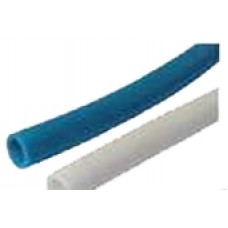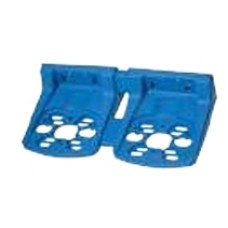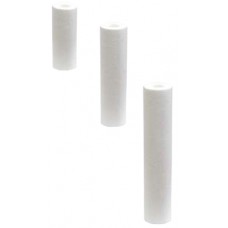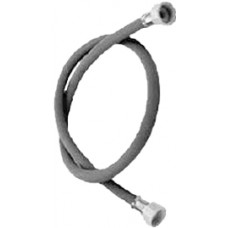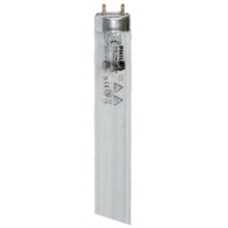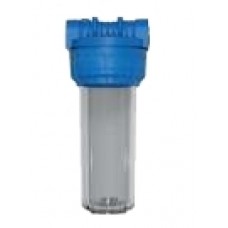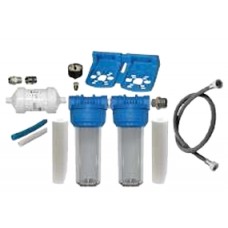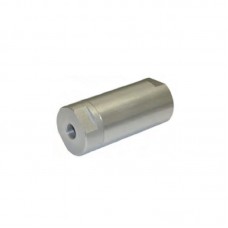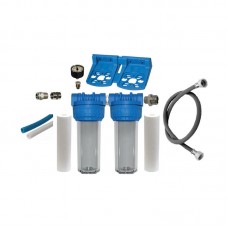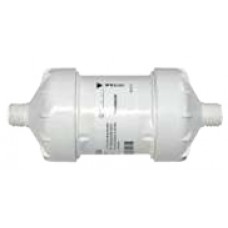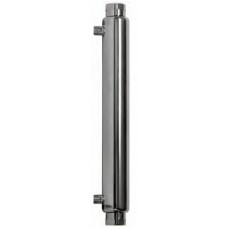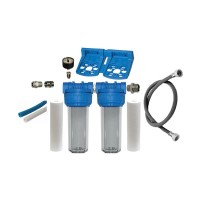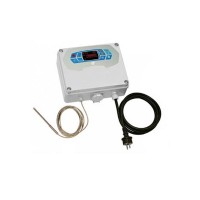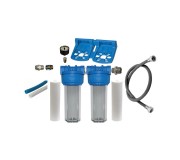
The operating principle of an artificial misting system is clear and simple: it is necessary to create high liquid pressure, direct it through nozzles, which then atomize it into fine particles, creating a fog in the selected area.
This fog can be used for:
- Cooling indoor and outdoor areas
- Dust suppression in industrial settings
- Neutralizing unpleasant odors
- Eliminating harmful microorganisms
Misting systems have a wide range of applications, but in every industry, effective water treatment is essential.
Importance of Water Treatment in Misting Systems
It is crucial to understand that misting nozzles have extremely small openings through which the liquid passes. If the water contains tiny dirt particles, they can reduce the system’s efficiency or even cause it to fail.
For this reason, water treatment is a critical step in the operation of any misting system and must be given special attention.
Mechanical Water Filtration: The Key Stage in Water Treatment
The first step in water treatment is to eliminate mechanical dirt particles. Even if water appears clean, this does not mean it is free of impurities.
Even microscopic dirt particles can cause serious problems in the system. To prevent this, a mechanical filtration system is installed before the pumps, which consists of:
- Filtration cartridges
- Pressure gauge
- High-pressure hoses
First filtration stage: A 5-micron filter cartridge, which removes larger particles.
Second filtration stage: A 1-micron filter cartridge, which eliminates even finer particles.
After passing through this water treatment system, the purified water enters the high-pressure pumps, while dirt particles remain trapped in the filters.
Final Filtration After the Pumps
Once the water has been processed by the high-pressure pumps, an additional high-pressure mechanical filter is installed. This filter:
- Ensures that no remaining particles reach the nozzles
- Protects the nozzles from clogging and premature wear
- Guarantees optimal system performance for years
This final filtration completely eliminates any risk of contamination, ensuring that the nozzles atomize the water efficiently and without interruption.
Advantages of the Water Treatment System
- Extends the lifespan of expensive misting system components
- Prevents pump failures
- No need for costly purified water
- Works with standard tap water
How the Mechanical Filtration System Works
The mechanical filtration process is simple yet highly effective.
- First, the water passes through the filtration system, where larger dirt particles settle at the bottom of the filter.
- Next, the filtration cartridge captures finer particles, allowing only water molecules to pass through.
- The system is designed to operate under high pressure, with filtration cartridges capable of handling up to 8 bar, while the final mechanical filter after the pumps can withstand even higher pressures.
Conclusion
Water treatment is a key factor in the efficiency and durability of misting systems. A well-designed mechanical filtration process ensures that the system operates smoothly, optimizes water usage, and prevents costly maintenance.
Need help selecting the right filtration equipment? Contact our specialists, and we will help you find the best solution for your misting system!

